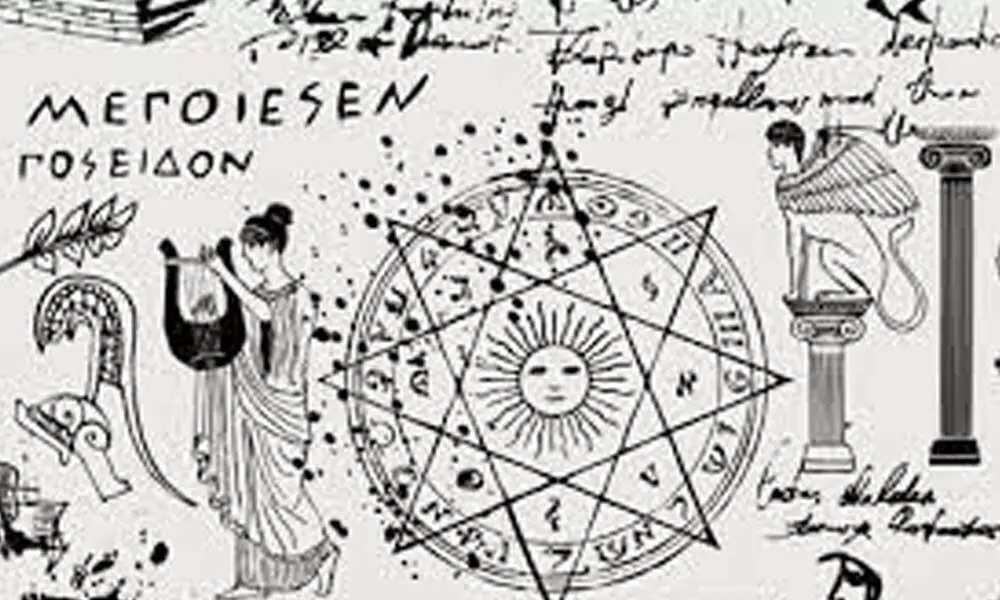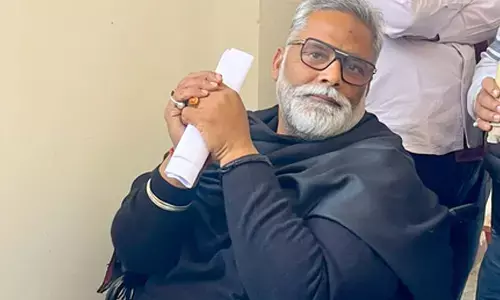Learning from the treasure troves of philosophy

Learning from the treasure troves of philosophy
A set of values, normally comprised of norms that serve as guides to recognise what is good or evil, right or wrong, virtuous or sinful, usually governs the conduct of people belonging to a race, creed, faith or an organisation of likeminded people.
A set of values, normally comprised of norms that serve as guides to recognise what is good or evil, right or wrong, virtuous or sinful, usually governs the conduct of people belonging to a race, creed, faith or an organisation of likeminded people. Such norms usually pertain to ethical conduct, or moral behavior.
They are functions of time and space, with the perceptions which they are founded varying sharply, from place to place, and time to time. A more detailed discussion of that phenomenon has already taken place in these columns, especially in the piece that appeared on 20-01-2021, with the title "Looking at Crime and Punishment"!
Probably the oldest fountain of true wisdom in the history of mankind, the Upanishads, even after thousands of years, serve to provide deep insights into the nature, and the underlying reality, of the universe and creation. The logo of the Central University of Hyderabad in Hyderabad reads 'education is that which liberates, all others are skills to make a living,' is from one of them.
The essence of the philosophy of all major religions of the world such as Christianity, Judaism, Islam, Zoroastrianism, Buddhism, Sikhism, and Jainism emanates from a sacred source, usually in the form of a book such as the Old and the New Testaments, the Holy Quran, or the Guru Granth Sahib. Of a similar genre are the 'Holy books of Shinto' of the Japanese, which are compilations of ancient myths and traditional teachings, passed down from generation to generation, by word of mouth.
The Analects of Confucius, 6th century BCE Chinese philosopher, on the other hand, is an ancient book of sayings and ideas, on the subject of how the welfare of a country can be best secured, by the thoughts and conduct of everyone from the national leadership to the common people.
Mankind has also, over several centuries, been guided, in its thoughts and actions, by the works of philosophers. Socrates, Plato and Aristotle, the ancient Greek philosophers, laid the foundation for the growth and development of disciplines such as philosophy, science, astronomy, and logic. Socrates believed in the virtues of clarity, logic and intellectual integrity.
He taught that reason, analysis and logic could lead to the discovery of the ultimate truth about life and existence. Plato was deeply influenced by the philosophy of Socrates and, in the 4th century BCE, was the founder of an academy at Athens. Most of his work comprised dialogue which, he believed, could lead to depth of understanding. The Republic was his best work. The salient features of that book were that a good beginning is most important for completing a task, that nothing good can be achieved without a struggle, that the soul is immortal, that the objective of education is to teach how to love beautiful things, and that men and women should be taught equally, as they are expected to do the same work.
Plato also extolled the virtue of humility in thinking and believed that confessing to ignorance was the beginning of learning. Aristotle, the student of Plato, and the Guru of Alexander the Great, was essentially an empiricist, in that he believed that knowledge arose from experience derived from the senses. On a somewhat lower plane, lessons relating to desirable conduct, and expected behavior in challenging circumstances, can be learnt indirectly through reading the collections of stories and fables such as Saadi's Gulistan, Aesop's fables, Vishnu Sharma's 'Panchatantra', etc.
There are, also in different Indian languages, collections of poems written by saintly persons, meant for providing guidance on moral and ethical values. 'Kabir Ke Dohe' in Hindi and the 'Sumati Satakam' in Telugu are good examples of such collections.
Composed in the 14th century, the collection of poems 'Sumati Satakam' by 'Bhadra Bhupala', is a popular reference source for parents and teachers to teach the right conducts and social values to children addressed the features of the contemporary social structure, but continues to remain of substantial relevance even to this day. Teachers find the poems of particular value in encouraging children to imbibe moral values and good conduct.
'Kabir Ke Dohe', authored by the 15th century mystic saint Kabir is, in several ways, a unique and invaluable collection of couplets. Though set in the context of mediaeval times, Kabir's philosophy was secular, and he had the courage boldly to condemn evils such as superstitions and rituals.
The tales recounted in the 'Amar Chitra Katha' are a veritable treasure of knowledge of information and knowledge about the heritage and culture of our country. Similarly, some periodicals are exclusively devoted to the field of children's stories, and serve to enlighten them and broaden their vision, while also providing wholesome entertainment. 'Chandamama' and 'Bala Mitra', primarily in Telugu, and 'Amar Chitra Katha' in Hindi and English, are well known examples of this category.
The evergreen 'Subhashitas' of the great 5th century CE philosopher-poet Bhartruhari comprise a trilogy of 'Satakas' containing valuable advice to the readers arising from his own experiences as a king, a lover and as an ascetic.
'Panchatantra' covers a wide gamut of topics across subjects such as philosophy, psychology, politics, music, and human relationships etc., narrated in an easily understood and compact style. The messages are of great value, especially in times such as the ones we are living in, conveying, as they do, the importance of peace and harmony while surrounded by hypocrisy and wickedness. Little wonder, then, that the tales have been carried far and wide, to places such as Arabian countries, Greece and Europe. They continue to enthral children and adults alike even to this day.
The 'Pedda Bala Siksha' in Telugu covers wide a canvas stretching from the fine arts to the science through mythology and was, until the 1960s, a part of the academic syllabus for students in Telugu language.
The fables of Saadi, who is believed to have lived in ancient Greece in the 6th and 7th centuries BCE, which covered social and political themes, were initially considered as an ethical guide for adults. Post Renaissance in Europe they were used in the education of children. Authored by him, the 'Gulistan', widely accepted as a fountain of wisdom, conveys, through a series of stories and anecdotes, the author's awareness of the absurdity of human existence, while simultaneously extolling virtues such as justice, liberality and contentment.
The Rubaiyat of Omar Khayyam, the 10th – 11th century CE philosopher - poet of Persia, conceals, below a deceptive exterior apparently recommending a life dedicated to hedonistic pleasure and luxury, a deep and profound fundamental message that, as Karl Marx was to say in later times, 'religion is the opiate of the masses'. Blind faith according to him, could divert one from the path to true enlightenment.
There are, as we have seen, any number of sources of experience, and sage counsel, for mankind to draw useful lessons from. And as we will see in what follows, there are many more such fountains of wisdom, such as guides, books of instruction, codes and manuals, to guide one in various walks of life, from games, sports and the fine arts to officials such as law, medicine, banking or engineering. As Plato rightly observed, one only needs to have the humility to accept the need to learn!
(The writer is former Chief Secretary, Government of Andhra Pradesh)
(The opinions expressed in this column are that of the writer. The facts and opinions expressed here do not reflect the views of The Hans India)










